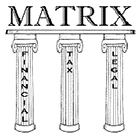Use of Last Pay Stub Prohibited
Authorized IRS e-file Providers are prohibited from submitting electronic returns to the IRS prior to the receipt of all Forms W-2, W-2G, and 1099-R from the taxpayer. The IRS has good reasons to prohibit the use of a taxpayers last pay stub in lieu of the actual W2.
Taxpayers are reasonable to expect that their last pay stub will reflect their income reported on their W2. Problems come about with the differences between the amount the taxpayer made and the amount of wages actually subject to tax. The difference between the amount made and taxable wages are pre-tax employee benefits. A few typical pre-tax employee benefits are health insurance, employer sponsored retirement plans like 401(k) and 403(b), HSA contributions, dependent care benefits, and employer paid parking. Pay stubs may be incomplete or not accurately describe these deductions are pre-tax causing either an overstatement or understatement of income. Miss reporting income even by a few hundred dollars can have a significant impact on the amount of tax or refund amount on a taxpayers return.
Another reason not to use the last pay stub to file a tax return is because the W2 contains unique identification information on it. The identification information is only found on the W2 and not on a paystub. This unique information lets the IRS know the correct taxpayer has a legitimate W2 which allows for the E-Filing of the return.
Taxpayers anxious to file early but do not quite have all their W2’s need not worry because the IRS filing season begins on Monday, January 29, 2018. We encourage taxpayers to consider filing as soon as possible after they receive all of their tax papers prior to January 29.
Tax returns will be transmitted on the day the tax return is completed. Taxpayers who complete their returns prior to January 29, 2018 E-Filing opening date will be put in a que as the IRS opens for the season. Taxpayers claiming refundable credits such as the Earned Income Credit or Additional Child Tax Credit should not expect their refund from the IRS until the middle of February. The reason for the refund delay is because of the PATH Act of 2015 which helps protect taxpayer identities and curb fraudulent refund claims.
This written advice is not intended or written to be used, and it cannot be used by any taxpayer, for the purpose of avoiding penalties that may be imposed on the taxpayer for following the advice. Other factors may need consideration that would change the opinion presented.
